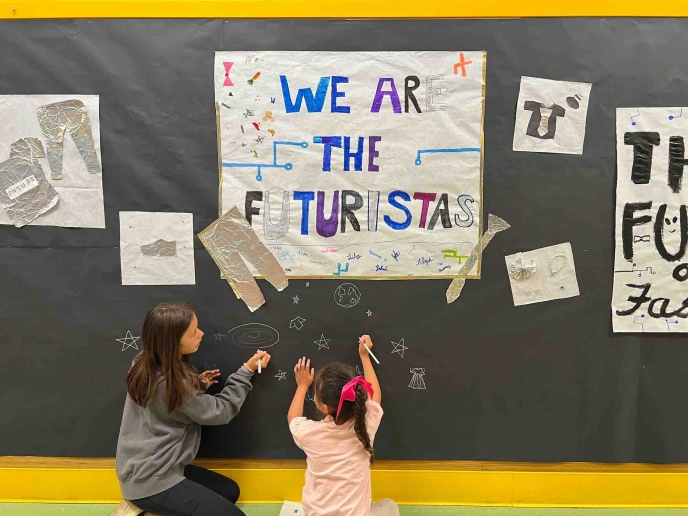Mission
“Khan Lab School is a community of learners empowering every student to navigate their own path.”
Our Educational Philosophy
Learning that is:
Learner-centered
Students take ownership of their learning in a supportive environment where teacher-guides foster independence through motivation, active engagement, and personalized guidance.
Mastery-based
Students have ongoing opportunities to close gaps and demonstrate mastery, ensuring strong foundations and encouraging lifelong learning.
Self-paced
Students progress at their own pace—accelerating, revisiting, or reinforcing learning as needed—within a framework of ambitious expectations and targeted support.
Content-rich and skill-driven
KLS values both deep content knowledge and essential 21st-century skills like critical thinking, collaboration, and communication.
Rooted in well-being and purpose
Social-emotional well-being, personal responsibility, and passion-driven learning are central to helping students grow into purposeful, resilient individuals.
Collaborative and student-led
Teachers and students learn from and teach one another, with students regularly stepping into leadership and peer-teaching roles.
Flexible and real-world aligned
Learning happens beyond the classroom through outdoor, community-based, or self-directed experiences that reflect real-world learning.
Advancement-ready
Students move ahead when mastery is demonstrated, with opportunities to engage in accelerated or college-level work as readiness allows.
Tech-enabled, experience-rich
Online tools support core skill development and free time for experiential, hands-on, and interdisciplinary learning.
Essential by design
KLS focuses on essential content and flexible exploration, helping students build a strong foundation while pursuing personal interests.
Affordable and replicable
By focusing on academic mastery, character development, and student passions, KLS offers a high-quality, cost-efficient educational model.
Open-minded and critically engaged
KLS nurtures independent thinkers by welcoming diverse perspectives and encouraging respectful exploration of complex ideas.
Academic FAQs
Dive deeper into how mastery-based learning and student agency shape the KLS experience, and discover why we're a school designed for innovation.
The best teaching and learning processes are student-centered and encourage students to take responsibility for their own learning.


